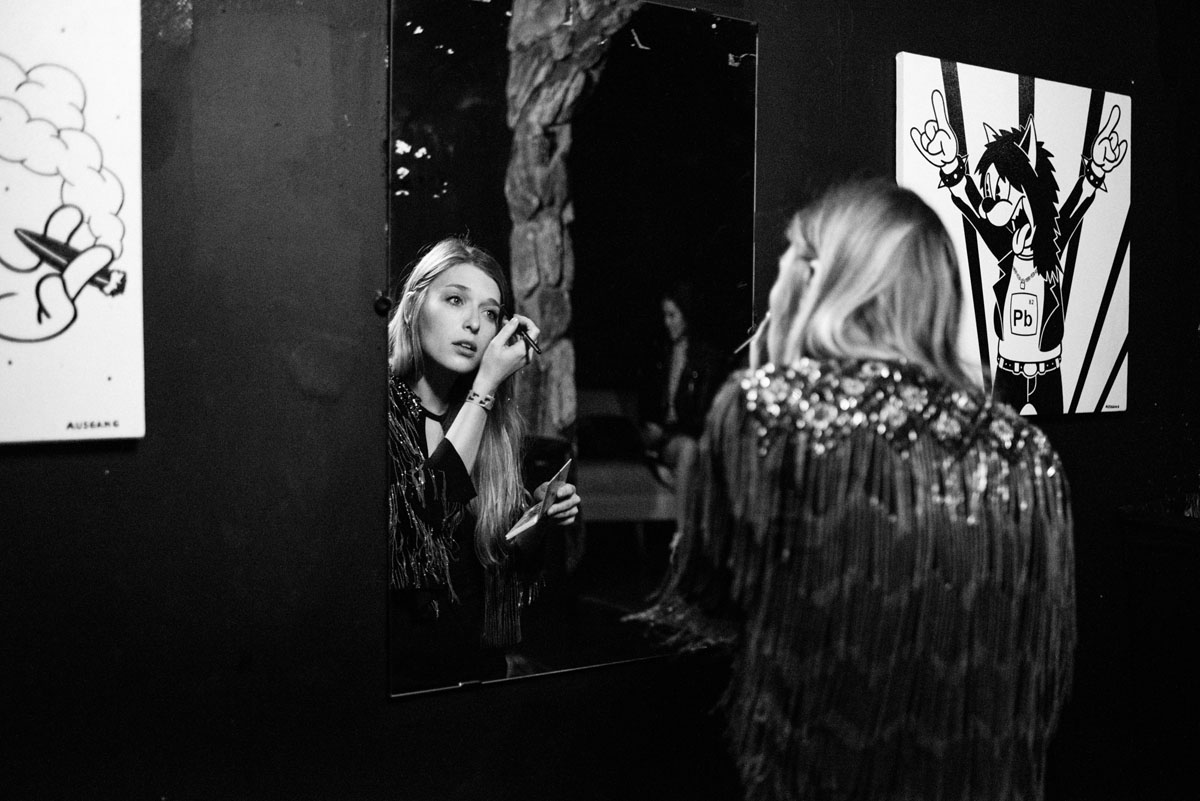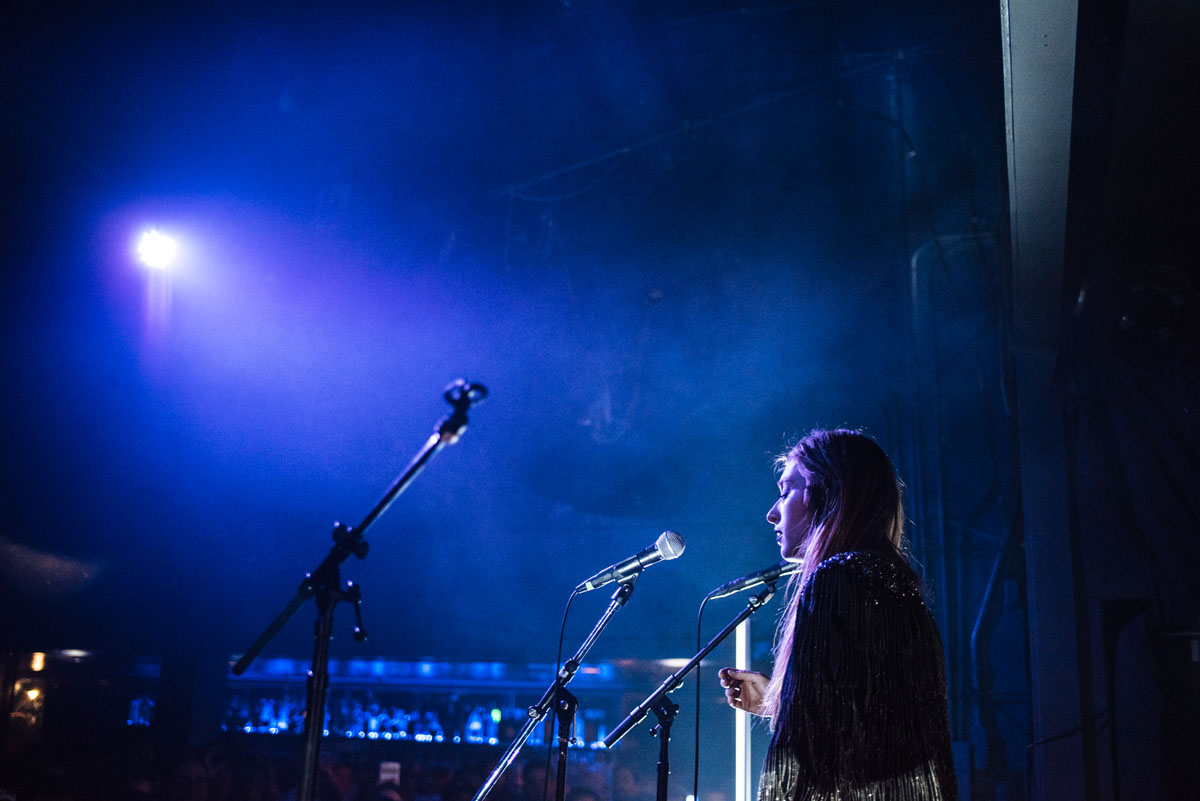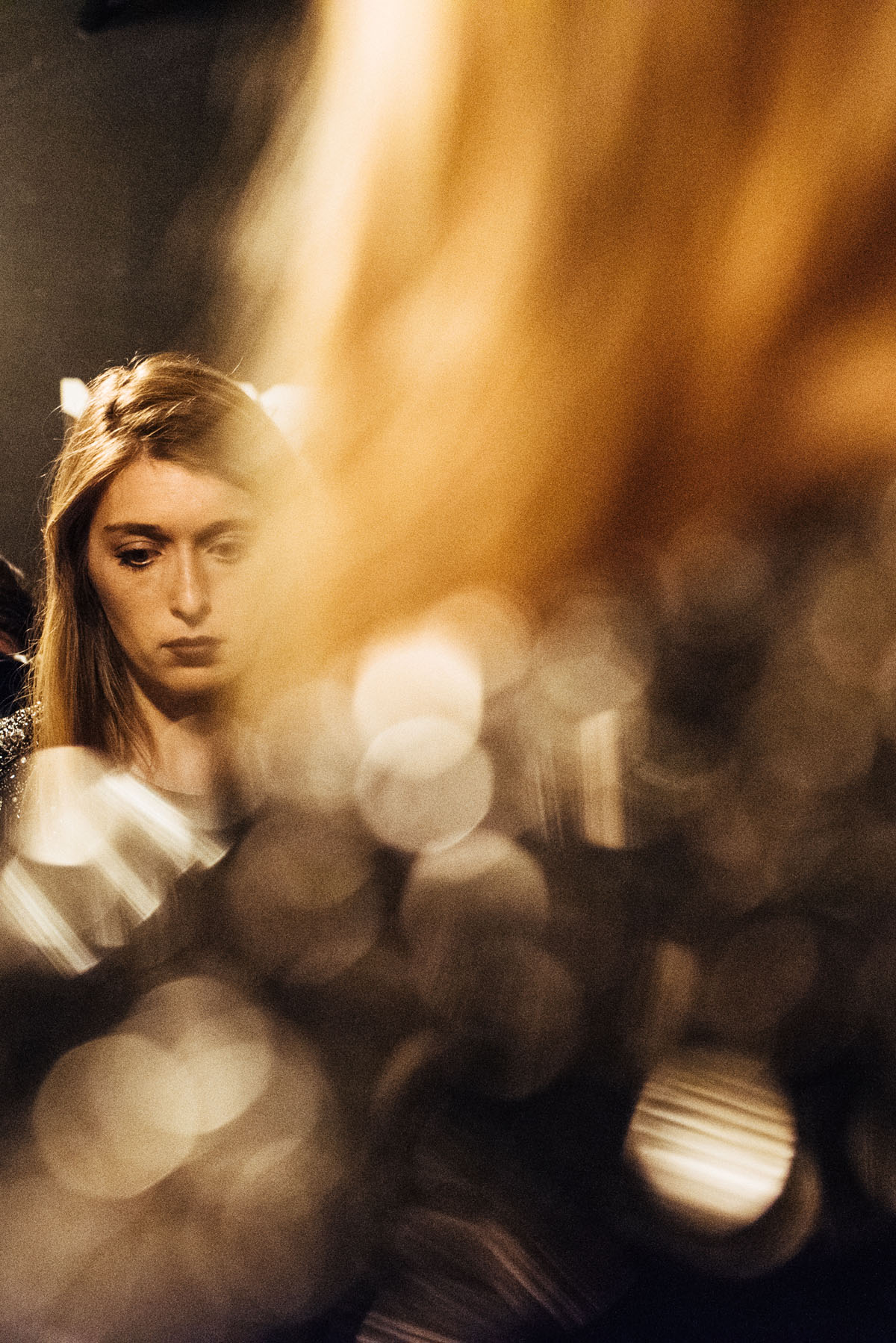Although still independent, New York’s Kelsey Byrne, better known by her stage name Vérité, has a collection of songs under her belt that are radio-ready, arena-friendly, and likely have the major labels drooling. Holding tightly to her artistic integrity while waiting tables for years at Applebee’s, Byrne has emerged from the day job as a self-made, full-time pop songstress, who in the grand scheme of things is really just kicking things off.
Words By Andy Gorel
Photos By Maya Dondonyan
Andy: You grew up in Warwick, NY which is an hour out of New York City. Although a small-town suburb, it does have a music scene, right?
Vérité: It has a very strangely small music scene. I think that you’ll have your jam bands, and you’ll have a lot of underground, more punk/ska, although more so Orange County and not particualrly Warwick, but it’s very small.
Andy: Do you feel growing up in Warwick influenced you as an artist or musician?
Vérité: I don’t know how much it has. I started playing shows in the city when I was 16, and I think that growing up in Orange County definitely allowed me to have a lot of experimentation room, and I’ve been playing shows since I’m super young there so I think it was a very good incubator. It gave me the confidence to move to New York City and start playing shows because when I started I was like 16 driving into Manhattan to play shows to no one.
Andy: Were there any artists in particular that you listened to growing up that inspired you to want to make your own music?
Vérité: Yes! It’s funny, I grew up listening to 90s alternative radio, and that just made me wanna rock, and then I started writing probably around the time I started listening to Radiohead and Death Cab For Cutie, and they were very big influences on my writing. And then Wilco and stuff like that as well.
Andy: After moving to New York, you spent your first few years waitressing at Applebee’s in Times Square, working sometimes seven days a week just to raise enough money to make music. How did you stay focused during that period of your life, and was it ever difficult to be creative when so much of your time was spent working to pay bills?
Vérité: There was a weird flip. For a while, when I moved to New York City, I didn’t know what I was doing or what I wanted to do. I knew I always wanted to play shows, and that was something that I was oddly focused on, but I think the only thing that made sense to me during that time was money. I was just like “I don’t know what profession I’m going into, but I know if I work and I have money in the bank, that makes me feel secure.” So I think I chased that for a while, to a slightly unhealthy extent where I worked so much, and then probably two years into it, I found a different creative outlet, and got rid of a lot of bad people in my life, and I switched gears. Then it became very clear, and it was like “I guess I’m gonna spend all my money on this,” which is horrifying. It wasn’t hard because honestly I wasn’t dedicating a lot of time to being creative. I was so focused on making money, and then when it flipped, it was creating in these tiny pockets and I viewed that as kind of a challenge. And then from there it’s like done.
“…I think everything is just about reality, how it is, and then ways in which I attempt to escape it.”
Andy: When you were putting money into your first EP, you said it was horrifying, but were you confident in your music at first?
Vérité: I was confident in the music and I was confident in the team, but I think it’s one of those things that no one really understands until you do it because if it did nothing – which a lot of music does nothing, a lot of great music does nothing – just realizing that there was a very big risk factor involved. If I lost money, no one else was losing money. It was all mine. Just coming to those realizations was important.
Andy: Do you think making the move to Brooklyn, or just New York City in general, helped you find your artistic identity?
Vérité: No. I know I feel like I should say yes, but no. I feel like I’m a very introverted, quiet person, so I never really got involved in a music community. I think I just had the idea of building up the community that I wanted around me which is my band, my team, and my people. So I feel like it’s a dick thing to say no, but no.
Andy: Once you found a direction to move in, you recorded “Heartbeat” and put it on the internet. It barely caused a blip on the radar, so you decided to take action yourself and start finding blogs to reach out to. The blog coverage attracted major label attention, but you decided to stay independent. This was a very conscious decision obviously. Do you want to talk about what was going through your head when you made the decision to keep waiting tables and finance Vérité yourself?
Vérité: People do it a lot of different ways, and there’s viable growth with all ways. For me, my focus is having a career in ten years. I see way too many people, and I think the trend is – I don’t think major labels develop artists anymore. I don’t think it’s their game. – So what a lot of artists do is sign off one or two songs really early, and the major label pushes their songs. If the label doesn’t like the response, then you may or may not be fucked. They’re not in the business of developing artists, so I just wanted to develop myself. We met with every label, but we were just transparent with, “We’re not ready to go to radio. I’m not ready to wager my whole career off of one song. Let me build a loyal fanbase,” and a few were interested, but we never found the right one.
Vérité: I also think people are way more capable of funding their own projects than they give themselves credit for. It’s okay to split your time between the practical work and the creative work. Ultimately, that’s going to leave you in a better position. It’s going to leave you with freedom and choice, and when you do bring on an investor – because a major label is just an investor. – All that shit is dead. I don’t think people understand, and they don’t give themselves credit because they don’t want to go fucking clean toilets at Applebee’s.
Andy: It was definitely a risky decision to self-finance, but after you realized you were producing something impressive enough that it drew major label attention, did it make you more optimistic about being independent?
Vérité: I think it was more so a decision of never wanting to stop momentum and productivity. Yes, it’s always a nice feeling when you have unanimous external positivity and support, but I think especially with EP 2 – EP 2 I drained the accounts. EP 1 I was going to sign, didn’t sign, and had no money. – There was a sense of, “We’re not gonna go shop the EP. We’re gonna go make the money.” It was never a question. I think people gravitate towards Applebee’s because it sounds fucking insane, but to me it was never a question of whether or not I would go fund everything myself. I was very aware that I’m a capable human being, and I can go stand on my feet for twelve to twenty hours at a time.
“…Internet people are real, and great, and supportive, but when you meet them and see them it’s a different experience.”
Andy: After you released your first EP, you said you were ready to go through with a major label deal, but it fell through. Did that take a toll on you mentally, as a person and/or artist?
Vérité: Yes, and no. I think that initially it was very hard, just because you get an idea in your head, and you think “I can finally have a lifestyle shift,” and “The momentum is gonna increase,” but ultimately it made me feel much more capable once I made – I made very risky decisions. Very risky financial decisions. Approved budgets I couldn’t afford. Approved a very expensive European tour. – I think it was just a lesson in that. Then when it came to the third EP, we never even talked about signing to a label for it. It never came up. I feel like most people think I’m signed at this point.
Andy: After releasing Echo, you developed a live show. What was it like to finally bring your songs to life and instead of seeing “Likes” or “Follows” on the internet, to actually have people in front of you singing the words?
Vérité: It’s when you realize that it’s a real thing. Internet people are real, and great, and supportive, but when you meet them and see them it’s a different experience.
Andy: Getting a live show together on the Applebee’s budget probably had its obstacles too, right?
Vérité: Yeah, it’s been a slower build, absolutely. You can’t really avoid the slower build. In the beginning it was super makeshift. Even now, there are things that I want, and need, that I just view as the next level. It’s taken a year and a half to build the live set to what it is today, so it’s accepting the slower build.
Andy: Is the Nord that you play new?
Vérité: No, the Nord is old! I stopped playing piano for a while, and then when we parted ways with our guitarist, I was like “I’m not getting on stage without an instrument, god forbid the tracks go out. We need to be able to play songs.”
Andy: When you finally quit your day job, what did it feel like to be a sustainable independent artist who worked to finance and grow your project without the help of any label?
Vérité: Weird. I had a very nervous breakdown, because then I had time. I wasn’t used to having time. Then I had time to think.
Andy: Are Vérité and Kelsey Byrne the same person? Vérité does mean “truth” in French.
Vérité: Yes, and no. Vérité is the cooler, badass, more sleek version of Kelsey, but inherently they’re the same person. Like Kelsey doesn’t fucking wear heels. You know what I mean?
Andy: A lot of your songs appear to be very honest and real, however there also appears to be a sense of escapism intertwine with the realism. Would you consider yourself a realist, escapist, or both?
Vérité: Escapist. I think everything is just about reality, how it is, and then ways in which I attempt to escape it. I guess it’s a combination of both in that way.
Andy: Do you have a particular songwriting process that works best? Either lyrically or musically.
Vérité: No. I bring all of the ideas into every session. So I think taking things that are mine, and then bringing them to work very collaboratively with other people, and then that process wherever it takes us, whether it be through email, in person, I don’t really have a preference.
Andy: So do you just start with a vocal idea?
Vérité: I usually have a melody, lyrics, sometimes basic production ideas, sometimes just harmonic changes. Whatever the most basic form of the idea is.
Andy: Does the live show aspect cross your mind at all during the songwriting or recording processes?
Vérité: Nope. Not at all. When we started this set I had a conversation with my guitarist, and I was like, “There’s no guitar, I’m sorry!” It doesn’t really inform the songwriting process. I miss my guitarist though!
“…I don’t think when I write, I just do it.”
Andy: Do you think perfoming live has affected the evolution of your music since the Echo EP?
Vérité:Totally. I think if anything in confidence. It’s just a weird thing. You want things to be more dynamic, and you understand how a live set works. So I guess very subtly it informs the writing process. I don’t think when I write, I just do it.
Andy: On Living you worked with a different producer on each song, and the result is a diverse, but coherent collection of songs that appear to be your best work yet. Was there anything you did differently from a songwriter’s mindset when writing the EP?
Vérité:No, because I wrote everything without thinking, and then I chose songs because EPs are odd to put together, because you want the biggest statement pieces together, but I think in post-production and in editing, I was very meticulous with each producer, and making edits to make sure it was a cohesive project.
Andy: Is it your best work yet?
Vérité: I think so. The goal was to have it be an elevation, so I think it’s that. I would never say my work is the best of anything.
Andy: Do you feel the most connected to it because it’s your most recent work?
Vérité: Yeah, I definitely feel that way, and I feel like I accomplished the goals I wanted to with it. Other than that I have no opinions.














1 comment
If you’re looking for a reliable Analogue Pocket Screen Protector, check out screenshield.com.au. The precision cut and smooth finish are perfect for retro gaming lovers.